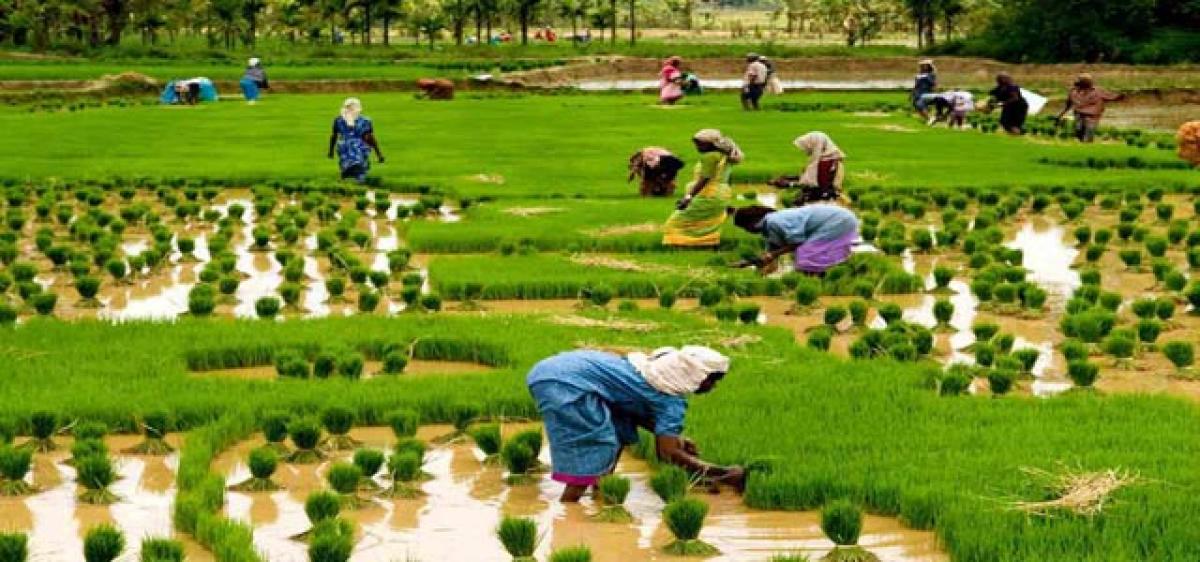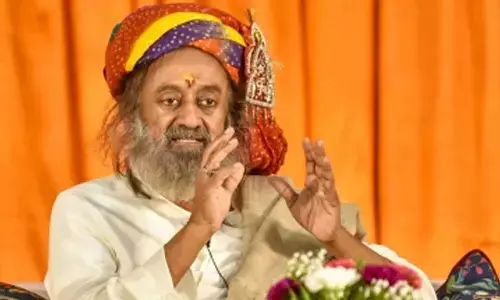No takers for agriculture among youth

As per recent reports of agricultural department, Government of India, many of the rural youth are moving away from agriculture or its related professions in rural areas.
Green losing its sheen
As per recent reports of agricultural department, Government of India, many of the rural youth are moving away from agriculture or its related professions in rural areas. The average age of farmers and agri-wage workers in the country was found to be 52 years, while majority are around 40-65 years of age. Only around 3.5 per cent of agriculturists are in the age group of 20-30 years, while the average strength of this group in rural India is found to be around 27 per cent.
Many in this group like to be in pluri-activity or multi-professional activities, though they possess avenues to become farmers or farm workers. Why is it so? Many scientists and socio-political economists, including renowned agriculture scientist, Prof MS Swaminathan, were viewing this as a serious threat to Indian agriculture. This trend may inevitably result in insecurity to food production and also pose a threat to our national sovereignty, as experienced earlier.
In agriculture that is intertwined with small land holdings (av.0.57 ha) and large populations (more than 600 million on agriculture and its allied sectors), human resource is of prime importance, until secondary and tertiary sectors could absorb them. The survey exposed the discouraging literacy levels among those sections (grown up groups) who thrive on agriculture.
Experts have identified numerous reasons for this discouraging situation including abnormal risks and weather dependent aberrations influencing the outcome of agriculture unlike other professions, and, decrease in effective public investments on small holding agriculture and rural infrastructures, especially after economic reforms that were shaped due to India’s entry into World Trade Organisation (WTO). The other contributory factors to this negative trend comprise domination of urban based market forces and input sector traders violating trade ethics.
In addition to this, new generation youngsters in many regions face acute problems related to access to land which is the basic resource of agriculture. The lacunae in education system which seldom inculcates agriculture as a dependable vocation and deskilling of rural youth due to degrading assessment of farming as honourable and economically viable occupation are major reasons contributing to detrimental impact on agriculture sector.
Further, according to the experts, governments in the realm of rapid GDP growth are also disregarding small scale food production or agriculture. The reason for the young generation moving away from agriculture is attributed to factors like the desire of rural youth to be identified and respected, concentration of education and medical facilities in urban areas, and their search for social dignity through urban professions.
So how do we overcome these problems to retain food security and strengthen sustainable agriculture?
As per Food and Agriculture Organization (FAO) and International Fund for Agriculture Development (IFAD), there is dire need to enhance opportunities of generating sufficient incomes through agriculture. Governments should have commitment to demonstrate more interest in agriculture. Marketing avenues for Agripreneurs, producers’ cooperatives should be expanded by spending on rural infrastructures.
New trends in organic or alternative farming methods should be promoted among urban youth to encourage the involvement of creative brains in agriculture. National Commission on farmers emphasized that priority should be given for creating more remunerative and secured jobs that safeguard sustainable livelihoods for rural youth.
Such economically rewarding and intellectually stimulating opportunities would create dynamic professionalism among the youth. A classic example of how a participative culture would achieve productive results is reflected Dr.Verghese Kurien’s endeavors in enhancing incomes and infusing social consciousness by involving producers as partners or share holders in milk cooperatives.
Another instance of an initiative that has provided impetus to farming is the successful attempts of few countries like Cuba where land relations are adjusted and infrastructures are strengthened with the objective of retaining youth- both in rural and urban areas- in agriculture. (Writer is Convener, Rythu Rakshana Vedika,Guntur)
By Prof N Venugopal Rao




